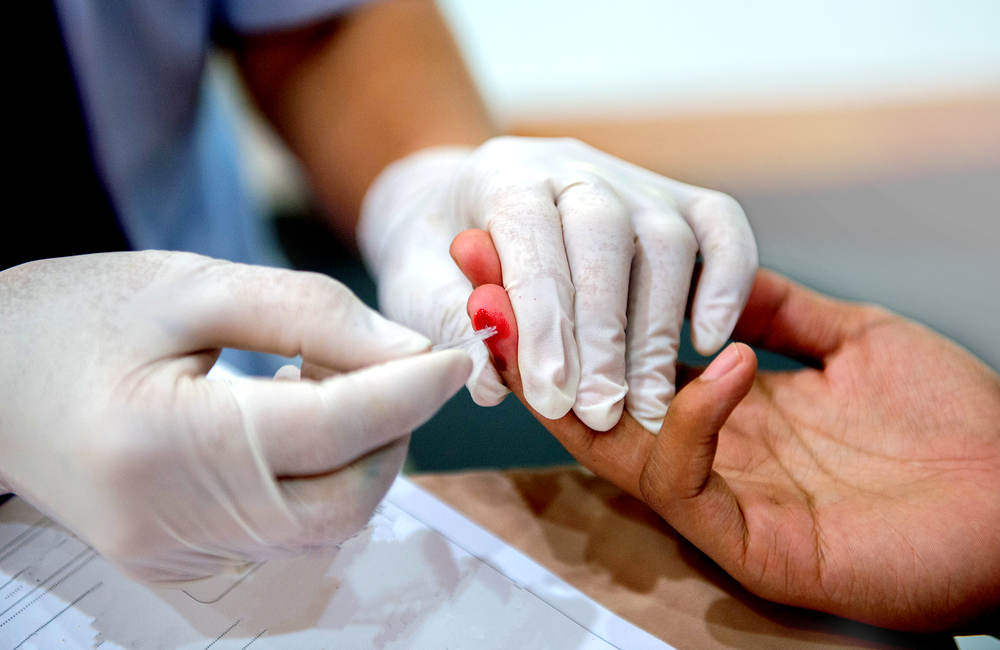- In today's world, being proactive about one's health is more critical than ever. HIV, the human immunodeficiency virus, is a serious condition that can have life-altering consequences if left untreated.
In today's world, being proactive about one's health is more critical than ever. HIV, the human immunodeficiency virus, is a severe condition that can have life-altering consequences if left untreated.
Early detection is critical to managing HIV effectively and living a healthy life.
Here, we'll explore five signs that should prompt individuals to prioritize HIV testing and why it's crucial to take action.
1. Persistent Fever
One of the early signs of HIV infection is a persistent fever. While fevers can be caused by various factors, including infections and inflammatory conditions, a fever that persists for an extended period without an apparent cause should raise concerns.
Read More
HIV can weaken the immune system, making the body more susceptible to infections, which can manifest as prolonged fevers.
Therefore, if you experience persistent fever, it's essential to consider HIV testing as part of your healthcare routine.
2. Night Sweats
Night sweats, especially when accompanied by other symptoms like fever and weight loss, can be indicative of HIV infection.
These drenching sweats that disrupt sleep can be distressing and may signal an underlying health issue.
While night sweats can have various causes, including hormonal imbalances and certain medications, they are also a common symptom of HIV during the early stages.
Therefore, individuals experiencing night sweats should consider HIV testing to rule out or confirm infection.
3. Unexplained Weight Loss
Significant and unexplained weight loss is another warning sign that should prompt HIV testing.
Although intentional weight loss through diet and exercise is often celebrated, unintentional weight loss without changes in lifestyle habits can indicate an underlying health problem.
HIV can cause weight loss due to factors such as decreased appetite, nutrient malabsorption, and metabolic changes.
Therefore, if you notice a sudden and unexplained drop in weight, it's essential to consult a healthcare provider and consider HIV testing as part of the diagnostic process.
4. Fatigue
Fatigue, or persistent tiredness, is a common symptom experienced by individuals living with HIV.
The virus can cause fatigue through various mechanisms, including direct effects on the body's energy metabolism and the immune system's response to infection.
While fatigue can result from numerous factors, including stress, poor sleep quality, and medical conditions, persistent fatigue that interferes with daily functioning should not be ignored.
HIV testing can help identify the underlying cause of fatigue and facilitate appropriate management strategies.
5. Swollen Lymph Nodes
Swollen lymph nodes, particularly in the neck, armpits, and groin, can be a sign of HIV infection.
Lymph nodes are essential to the immune system and can enlarge in response to infection.
In HIV, swollen lymph nodes may indicate an active immune response to the virus.
While swollen lymph nodes can also result from other infections or medical conditions, persistent enlargement without an apparent cause warrants medical evaluation, including HIV testing.
Being aware of these five signs – persistent fever, night sweats, unexplained weight loss, fatigue, and swollen lymph nodes – is essential for maintaining good health, especially concerning HIV infection.
If you experience any of these symptoms, it's vital to consult a healthcare professional and consider HIV testing.
Early detection allows for timely intervention and access to treatment, ultimately improving health outcomes and quality of life. Always remember that prioritizing your health and well-being is always the best decision.






-1761652163-md.jpg)





-1761652163-sm.jpg)